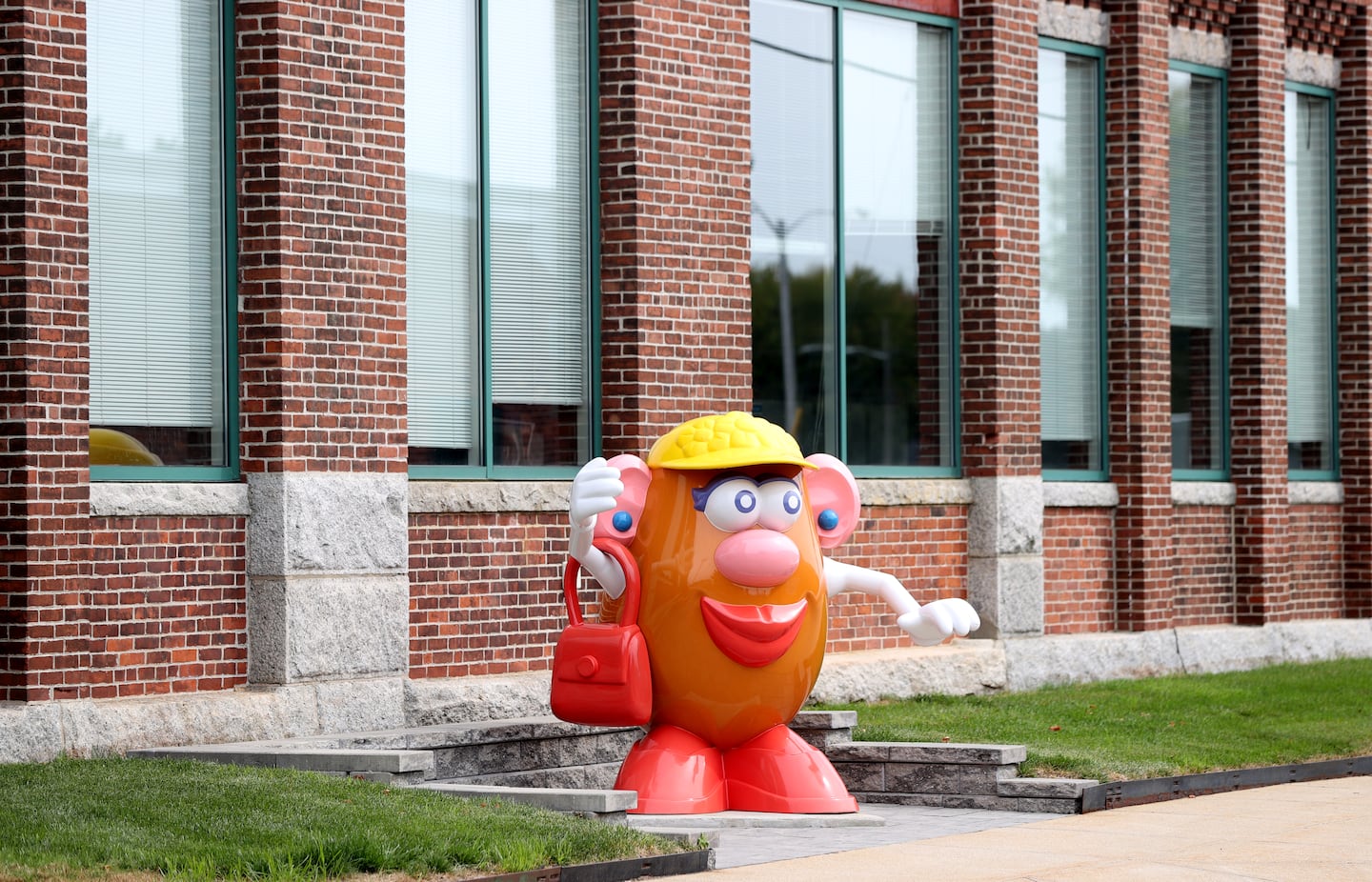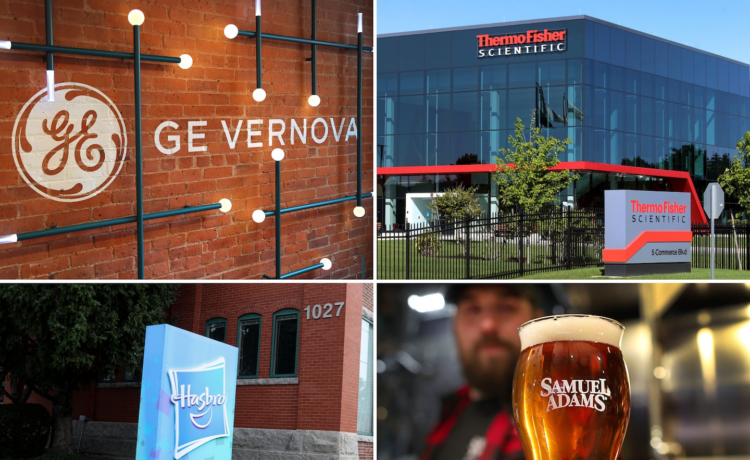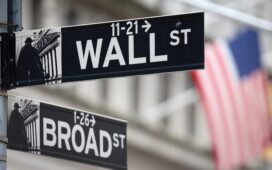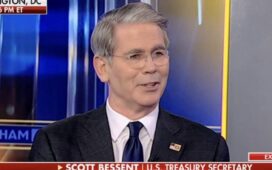The shift is no surprise, given the stock market’s violent reaction to “Liberation Day,” when Trump rolled out his patchwork of tariffs that seemed to affect most of the free world (and a few penguins). The president later put most of it on hold for 90 days, though a base layer of 10 percent for many countries and products remained — not to mention a much higher tariff for Trump’s favorite sparring partner, China.
Executives on these earning calls present a stoic front: Most don’t sound all that happy about the turn of events, though they don’t criticize the president directly for picking trade fights with other countries. The prices on everything from aluminum cans to Dungeons & Dragons box sets could be affected. Just how much gets passed on to clients and consumers will vary greatly, from business to business and product to product.
Consider Cambridge-based energy company GE Vernova, where chief executive Scott Strazik and chief financial officer Kenneth Parks probably would have preferred fielding questions about order backlogs and rising demand for electric infrastructure during their April 23 call.
Instead, they responded to queries about how the Trump tariffs are resulting in an additional $300 million to $400 million in inflationary costs this year for the company, though the executives will continue to try to “mitigate” the impacts (to use the buzzword of the moment).
If it’s any consolation to Strazik and his crew, their former colleagues at GE Aerospace and GE Healthcare didn’t escape unscathed, either. They reported similar tariff-related hits.
For GE Vernova, the supersized tariff that Trump is imposing on Chinese imports is the biggest headache, though the broader tariffs of 10 percent for numerous other countries aren’t helping matters. But for now, at least, GE Vernova is holding firm on its overall outlook for 2025.
On the same day as GE Vernova’s earnings, Waltham-based lab equipment supplier Thermo Fisher Scientific warned of a “$400 million headwind” in 2025 from the China tariff, because of the effects on China-sourced parts and China’s retaliatory tariffs on products that Thermo Fisher makes in America and ships to that country.
Also that day, Marlborough-based Boston Scientific chief executive Michael Mahoney forecast a $200 million hit to his company from the tariffs this year. As a result, BSX is cutting back on meetings and travel, per CFO Daniel Brennan, although it’s not announcing any new decisions yet about moving manufacturing around.
Hasbro, meanwhile, is speeding away from China as quickly as it can, with hundreds of items currently made in China being moved to factories in other countries by the end of this year. Chief financial officer Gina Goetter said Hasbro executives hope to be making fewer than 40 percent of its products in China by 2026.

Chief executive Chris Cocks seemed happy to report that the Pawtucket company is still making most of its board games, such as Monopoly, at a factory in East Longmeadow (albeit through a third-party supplier). But he warned that consumer spending on toys will be similar to what the industry saw during the 2008-2009 recession — and that warning was before Trump’s comments that kids will have to make do with only two dolls instead of 30.
Cocks said he is accelerating a $1 billion cost-savings plan as a result of the tariffs. And he had just announced he’s putting off a decision about whether to move the company headquarters to Boston or stay closer to home in Providence.
Meanwhile, the bad news keeps piling up. Teradyne’s customers in the semiconductor sector are pulling back, preventing the North Reading-based manufacturer from offering any financial predictions beyond the current quarter. Boston Beer executives got peppered with questions about how tariffs are driving up expenses and driving down consumers’ thirst for Sam Adams. And at New Britain-based tool maker Stanley Black & Decker, executives said that tariff-related price increases are already showing up on hardware store shelves.
Not everyone seems to be worrying, though. Michael Battles at Norwell-based Clean Harbors promised that tariff concerns are “a winner for us” in part because it could mean more reshoring of manufacturing in the United States; that in turn means factories here will have more industrial waste to discard, possibly to Clean Harbors crews. And at Yankee Candle parent Newell Brands, chief executive Chris Peterson boasted that his company is well-positioned to benefit from the craziness — he used the phrase “global trade alignment” ― after a “period of temporary disruption.” That’s primarily because the company had already started aggressively moving production out of China to other countries.
Citi analyst James Hardiman seemed to sum up the tumult perfectly when he asked the Hasbro executives this simple question on their call: “How do you even make decisions in this current environment?”
Cocks replied by saying he’s assuming the United States will get to a “reasonable and logical trade policy ultimately, once all the negotiations are done.”
Can Hardiman and other analysts take that to the Monopoly bank? That remains to be seen. For now, these earning season comments sure make Trump’s trade fights look like a roll of the dice.
Jon Chesto can be reached at [email protected]. Follow him @jonchesto.





